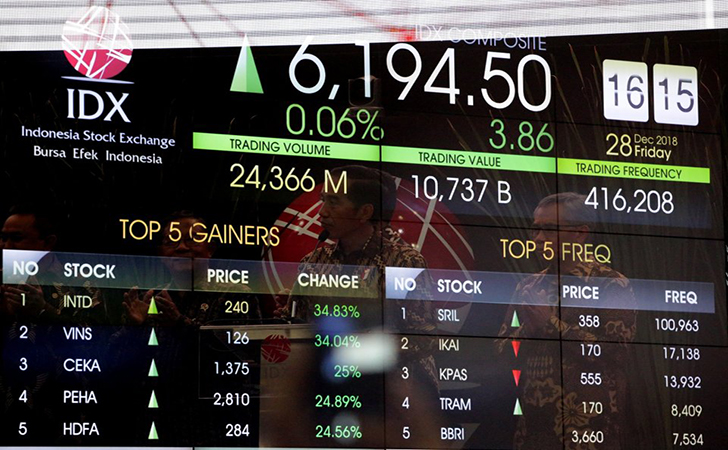Transparency plays a fundamental role in maintaining a stable and thriving capital market. In Indonesia, the push for greater transparency is vital to attracting investors, improving governance, and strengthening market confidence. As one of Southeast Asia's largest economies, Indonesia has made strides in enhancing regulatory frameworks, yet challenges remain. This article explores the significance of transparency in Indonesia's capital markets, the challenges that persist, and the potential solutions to enhance investor trust.
The Importance of Transparency in Capital Markets
Transparency in capital markets refers to the availability of accurate, timely, and comprehensive financial and corporate information. Investors rely on this information to make informed decisions, assess risks, and ensure fair market participation.
1. Enhancing Investor Confidence
One of the primary reasons transparency is crucial in Indonesia's capital markets is its direct impact on investor confidence. When companies and financial institutions provide clear and truthful disclosures, investors are more likely to trust the market. This trust leads to increased participation from both domestic and international investors, ultimately boosting market liquidity and economic growth.
For instance, the Indonesian Stock Exchange (IDX) has implemented regulations requiring publicly listed companies to disclose financial reports and material information. These measures aim to reduce fraudulent activities and insider trading, which have previously hindered market credibility.
2. Strengthening Corporate Governance
Good corporate governance is closely tied to transparency. When businesses operate with openness, they create accountability among executives and shareholders. This minimizes unethical practices such as financial misreporting, corruption, and conflicts of interest.
Indonesia has taken significant steps to improve governance through the Financial Services Authority (OJK), which mandates stricter compliance measures for listed companies. The adoption of Environmental, Social, and Governance (ESG) reporting is also gaining traction, ensuring businesses adhere to global standards of ethical operation.
3. Attracting Foreign Investments
Foreign investors are highly sensitive to market transparency. Markets that lack proper disclosure mechanisms often struggle to attract international capital, as investors fear hidden risks and potential losses. By strengthening transparency, Indonesia positions itself as a more attractive destination for global investors.
Countries with strong transparency frameworks, such as Singapore and Malaysia, have successfully attracted foreign direct investments (FDI) due to their predictable and investor-friendly regulatory environments. If Indonesia can continue improving its transparency measures, it has the potential to follow a similar growth trajectory.
Challenges Hindering Transparency in Indonesia's Capital Markets
While efforts have been made to enhance transparency, several challenges still persist in Indonesia's capital markets.
1. Inconsistent Financial Reporting
One of the key issues is the inconsistency in financial reporting standards. Some companies, particularly smaller enterprises, lack the resources or willingness to comply with strict disclosure requirements. This inconsistency can lead to misinformation and investor skepticism.
2. Regulatory Gaps and Enforcement Issues
Although regulatory bodies such as OJK and IDX have established various compliance rules, enforcement remains a challenge. Some companies find loopholes to bypass transparency regulations, and penalties for non-compliance are often insufficient to deter misconduct. Strengthening enforcement mechanisms is crucial for achieving long-term transparency.
3. Limited Public Awareness
Another challenge is the lack of awareness among retail investors regarding the importance of transparency. Many individual investors in Indonesia do not have the financial literacy to assess corporate disclosures effectively. Increasing financial education initiatives can help bridge this gap and empower more investors to participate confidently in the market.
Solutions to Improve Transparency in Indonesia's Capital Markets
To build a more transparent and resilient capital market, Indonesia needs to implement several strategic solutions.
1. Strengthening Regulatory Frameworks
Regulators must continue refining existing transparency policies while ensuring strict enforcement. This includes:
- Requiring real-time disclosures for market-sensitive information.
- Increasing penalties for companies that fail to comply with reporting standards.
- Encouraging digital reporting systems to improve accessibility and accuracy.
2. Promoting ESG and Sustainable Finance Reporting
As global investment trends shift towards sustainability, Indonesian companies should adopt ESG reporting practices. This not only enhances transparency but also aligns businesses with international standards, making them more attractive to investors.
3. Enhancing Investor Education Programs
Financial literacy programs should be expanded to educate retail investors about transparency and market risks. When investors are well-informed, they can hold companies accountable for their disclosures, further strengthening market integrity.
Conclusion
Transparency in Indonesia’s capital markets is essential for fostering investor confidence, improving governance, and attracting foreign investments. While significant progress has been made, challenges such as inconsistent reporting, regulatory gaps, and limited financial literacy must be addressed. By strengthening regulatory frameworks, promoting ESG standards, and enhancing investor education, Indonesia can build a more transparent and robust capital market that supports sustainable economic growth.
Read More






 Wednesday, 25-02-26
Wednesday, 25-02-26







